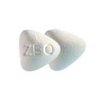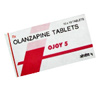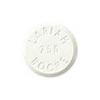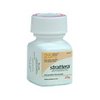INDICATIONS
Coumadin is used for treating and preventing harmful clots that may occur in the veins (venous thrombosis), in the lungs (pulmonary embolism), with a type of abnormal heartbeat (atrial fibrillation), or following a heart valve replacement. Coumadin is also used to reduce the risk of stroke and other problems in patients who have had a heart attack. Coumadin is an anticoagulant. It works by blocking the synthesis of certain clotting factors. Without these clotting factors, blood clots are unable to form.
INSTRUCTIONS
Use Coumadin as directed by your doctor.
- Do not take in larger or smaller amounts or for longer than recommended. Follow the directions on your prescription label.
- Never take a double dose of this medication or take it together with other products that contain warfarin or coumarin.
- Your doctor may occasionally change your dose to make sure you get the best results.
- Take Coumadin at the same time every day. Coumadin can be taken with or without food.
- Avoid dieting to lose weight while taking Coumadin. Tell your doctor if your body weight changes for any reason.
- While taking Coumadin, your blood will need to be tested often. Visit your doctor regularly.
- You may need to stop taking the medicine for a short time if you need antibiotics, surgery, dental work, a spinal tap, or spinal anesthesia (epidural).
- Continue to take Coumadin even if you feel well. Do not miss any doses, unless directed to do so by your doctor.
- If you miss a dose of Coumadin, contact your doctor right away.
Ask your health care provider any questions you may have about how to use Coumadin.
STORAGE
Store Coumadin at room temperature away from heat, moisture, and light. Do not store in the bathroom. Keep Coumadin out of the reach of children and away from pets.
MORE INFO:
Active Ingredient: Warfarin sodium.







